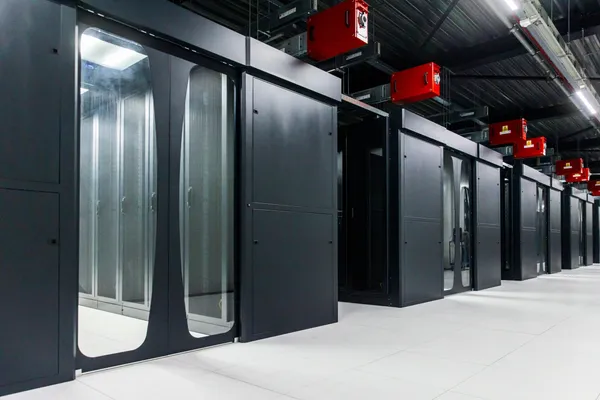Data Center Cross Connects – Its Challenges and Opportunities

Knowledge blog
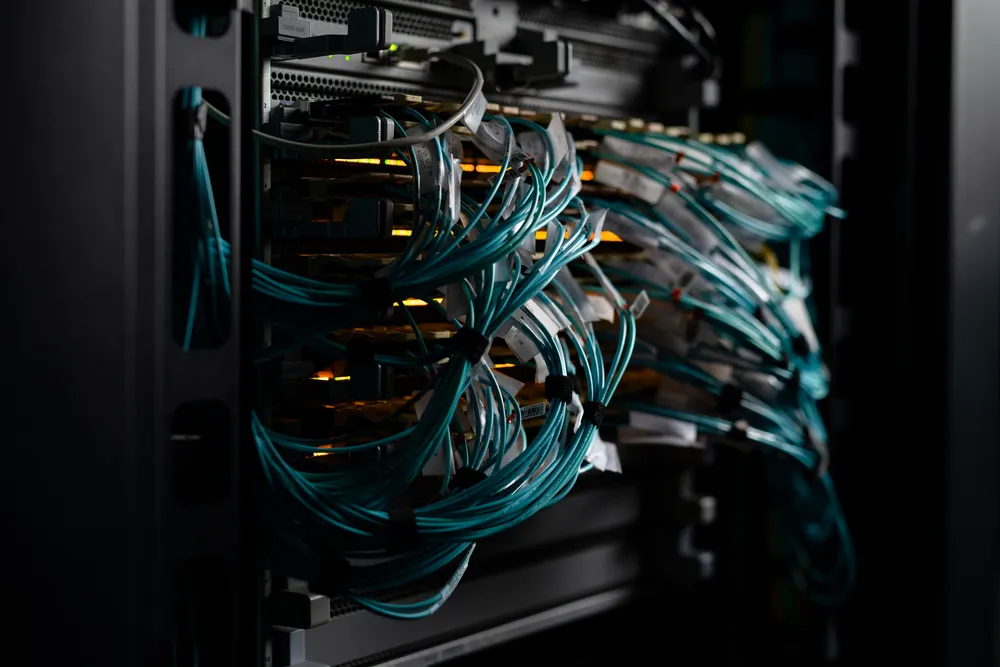
Data center cross connects (DCCs) are a way to directly, physical link the network(s) of an IT infrastructure within a colocation data center with the network(s) of others in the same data center, enabling them to interact and share data without the need for routing via a third-party service provider. In this article, we will go into more detail about the possible benefits of utilizing data center cross connects for your IT infrastructure.
Data center cross connects are typically used to connect different parts of a large organization’s IT infrastructure, such as connecting a company’s private cloud to its public cloud. Or connecting a company’s storage platform to its server environment, or its co-located environment to an on-premises server room at close distance. They can also be used to connect multiple tenants within a multi-tenant data center though, allowing them to share resources and communicate with each other directly.
Executive Summary
Data center cross connects are a way to physically link the network of an IT infrastructure within a colocation data center with the network(s) of others in the same data center, enabling them to interact and share data without the need for routing via a third-party service provider. They are typically used to connect different parts of a large organization’s IT infrastructure, such as connecting a company’s private cloud to its public cloud, or its dedicated servers to their storage platform. They can also be used to connect multiple tenants within a multi-tenant data center while creating the opportunity to establish an ecosystem within the data center environment. The type of connection and port speed selected will depend on the specific requirements of the networks being connected and the data transfer rates required/allowed. The port speed of a data center cross connect is especially important when applications require high bandwidth and high-performance data transfer.
Direct data center cross connects can physically link two pieces of data center equipment or networks inside a data center. A private data center cross connect is a connection that is made through a network service provider, allowing for high-speed communication between the systems or networks, which can improve the performance and efficiency of IT infrastructures. Businesses should weigh the trade-offs before selecting the best solution for their data center environment. Direct cross connects typically come with low latency and cost-effective options, while private data center cross connects provide a dedicated and isolated connection between devices or networks. Private cross connects can also be used to create a more scalable IT infrastructure and meet compliance requirements.
DCCs can be established using a variety of technologies, such as fiber optic cables, copper cables, coax, or even wireless connections. The type of connection and port speed selected will depend on the specific requirements of the networks being connected and the data transfer rates required/allowed. Most data center colocation companies charge a setup fee and a monthly fee for it. The type of the data center cross connect and its port speed both affect the cross connect pricing.
The port speed of a data center cross connect refers to the maximum data transfer rate that can be achieved between two data center equipment pieces connected through that cross connect. A higher port speed allows for faster data transfer and can be important for applications that require high bandwidth, such as large data transfers or streaming services. Additionally, the port speed can also determine the number of data center systems that can be connected to the cross connect and the overall capacity of the data center. As said, the port speed of a data center cross connect is especially important when applications require high bandwidth and high-performance data transfer. However, it’s not always a primary concern. It will depend on the specific use case and other factors as well.
Direct vs. Private Cross Connects – Their Benefits
Depending on how the connection is made, DCCs can either be a direct cross connect or a private cross connect. A physical link between two pieces of data center equipment or networks inside of a data center is known as a direct data center cross connect. This kind of connection is made by connecting the two networks or equipment pieces through a cable, such as an ethernet cable. This allows for direct communication between the two systems or networks, without the need for any external routing or switching.
A private data center cross connect is a connection that is made through a network service provider. This kind of connection enables communication between two networks or data center systems which are located in the same data center but are not physically linked. The switching and routing required to link the networks or systems will usually be provided by the network service provider.
The unique requirements of the IT infrastructure and the company will determine whether to use a direct data center cross connect or a private data center cross connect. Both kinds of cross connects can provide benefits to IT infrastructures depending on the situation and use case. Therefore, it’s crucial for businesses to thoroughly weigh the trade-offs before selecting the best solution for their data center environment.
Direct data center cross connects allow for high-speed communication between the systems or networks, which can greatly improve the performance and efficiency of IT infrastructures. Additionally, direct cross connects typically come with low latency, as the data center equipment pieces or networks are directly connected to one another. This can be beneficial for applications that require fast response times, such as real-time video or audio streaming, virtualization, and cloud-based services. Furthermore, direct data center cross connects can offer a cost-effective option as they do not require the use of external routing or switching equipment. This could be beneficial for organizations that are working with limited budgets, especially for those that have large numbers of data center systems and networks.
Private data center cross connects may also offer significant benefits though. They provide a dedicated and isolated connection between devices or networks. This could be beneficial for IT infrastructures that require higher levels of security, such as those handling sensitive data. Additionally, private data center cross connects can be used to create a more scalable IT infrastructure as they allow for the addition of new data center devices and networks to be added to the data center environment without disrupting existing connections. Furthermore, some organizations may have compliance requirements that need to be met while implementing cross connects. Private data center cross connects can typically help organizations to meet those compliance requirements.
Cross-Connect Establishment Challenges
Implementing and managing data center cross connects for IT infrastructures can present some challenges for organizations deploying them. One of the major challenges is the complexity of routing and switching required to establish a private data center cross connect between data center systems or the networks within a data center. This can be difficult to set up and manage, especially in data centers with large numbers of racks, equipment pieces, and networks.
Another challenge is the security concerns that may arise with private cross connects. The isolation of data center systems and networks for security reasons can make it difficult to detect and respond to security threats. Additionally, as the number of devices and networks within a data center grows, it can become increasingly difficult to manage and maintain the private cross connects between them.
The cost of data center cross connects can also be a significant obstacle for organizations working with limited budgets. Cross connects within a data center environment pretty much always come at certain expenses, but it is well known in the market that major, worldwide data center companies may overcharge for this. Actually, one should be aware of this before deploying an IT infrastructure in a particular data center. Furthermore, the amount of bandwidth available for a direct cross connect may be limited by the equipment or infrastructure available in the data center, and the latency of a direct cross connect may depend on the distance between the devices or networks. In some cases, the latency may be too high for certain applications or use cases.
Don’t let these challenges stand in your way though. The knowledgeable engineering support staff at Worldstream can guide you through the required steps for establishing data center cross connects at one of our data centers across Europe, explain your options, and go through how and where these data center cross connects could improve your company’s IT infrastructure and overall efficiency.
Weighing the Costs of Cross Connects
We just mentioned it briefly: the cost of data center cross connects. As said, the large data center chains tend to charge excessively for a data center cross connect. We sometimes wonder about that. Not only the fact that the companies in question dare to charge those excessive prices, but also the fact that there are colocation customers who are willing to pay those – in our eyes – exorbitant prices.
It would be too simplistic to say that a data center cross connect should not exceed the cost of a cable or even be offered for free. In our opinion, a reasonable market price may sure be paid for installing a data center cross connect, which involves considerably more than simply laying a cable. Perhaps it’s a good idea to highlight truly all associated expenses for a data center operator in this article when it comes to establishing a data center cross connect. To demonstrate that it wouldn’t be fair either to provide one for free.
We must keep in mind that the digital ecosystems that are currently available from some data centers have taken many years to develop. To develop these community eco systems, data centers typically need to make investments. This frequently involves taking part in co-investments with carriers. Taking the pricey dedicated fiber links, for instance, and bringing them to the data center. Next to that, especially at the beginning, a data center might have to finance colocation agreements for rack space and electricity without making any money at all. To persuade carriers to deploy a network Point-of-Presence in their facility, data center operators might do so to convince these carriers of the value of their network investment.
Connecting IT Infrastructure Resources - Use Cases
An example of a colocation client using data center cross connects to deploy an efficient IT infrastructure with diverse types of infrastructure deployments can be a retail company. The retailer may have deployed a private cloud where sensitive customer data, such as personal details, financials details, and purchase history are kept. The retailer may have chosen to keep the private cloud on servers in an enclosed rack in a secure colocation facility to guarantee that this data is safeguarded while still easily accessible for authorized staff.
Data center cross connects may be utilized by the retailer to connect the private cloud to the retailer’s public cloud environment, which is used for more broad and less sensitive purposes like website hosting. High-speed, dedicated cross-connects between the company’s private cloud and public cloud environments can ensure that the two systems work together seamlessly as a whole. By using these cross connects, the company can ensure that its data is transferred quickly, securely, and cost-effectively without relying on the public Internet.
Another example of a data center cross connect use case could be a healthcare organization with a sizable patient base that needs to store high volumes of patient data. The healthcare organization may decide to store its patient data in a private cloud housed in a colocation facility to maintain data security and compliance. To connect the private cloud to the company’s on-premises server room at its offices nearby, where the data analysis and processing takes place, the organization may use data center cross connects. These cross connects allow the company to implement a high-speed, low-latency connection between the private cloud and the on-premises data center, which can be critical for ensuring data security and compliance while allowing the organization to process and analyze the data in an efficient way.
In both cases, the usage of data center cross connects may help these organizations to build up their IT infrastructure in a secure, reliable, and (cost)effective manner while connecting various resources of the infrastructure together seamlessly.
Building Partner Ecosystems
Data center cross connects can also be used to effectively build a partner ecosystem inside a colocation data center that supports an organization’s market collaboration needs while creating operational efficiencies.
Healthcare – The healthcare organization we just mentioned can use a colocation data center to host their electronic health records system. By using data center cross connects, the healthcare organization may link directly to a number of partners, including for example lab results providers and suppliers of medical imaging. By doing so, the healthcare organization would be able to build a partner ecosystem inside the colocation data center. It may enhance the quality of care and patient outcomes by enabling the organization to access and exchange patient data in real-time.
Financial Services – Another example of a type of organization able to benefit from using data center cross connects for building a partner ecosystem could be a financial services organization. Data center cross connects might allow a financial services organization to link directly to a range of financial market data sources when their servers and IT infrastructure are housed in the same colocation data center. As a result, the financial services organization may create low latency access to real-time market data to enhance its trading operations and make wiser investment decisions.
The financial organization may obtain real-time market data such as stock prices, trading volume, and financial indicators, to assist their trading activity by connecting directly to financial market data providers. With the ability to swiftly react to market changes and spot trends and patterns in the industry, this may help the financial services organization make more educated investment decisions. Via data center cross connects, the organization may also link to other suppliers of financial services, such clearing and settlement services, which can help them expedite their trading processes and cut expenses.
AdTech/MarTech – An AdTech/MarTech company is yet another example of a type of organization that may benefit from building a partner ecosystem inside a colocation data center using data center cross connects. Data center cross connects may enable the AdTech/MarTech organization to access real-time data quickly, securely, and efficiently from partners co-located in the same data center, enabling them to assist their advertising and marketing operations and make better informed decisions. It allows AdTech/MarTech firms to link directly to a range of partners, including social media platforms, publishers, and ad networks.
By using data center cross connects, an AdTech/MarTech company’s access to real-time data including user behavior, demographics, and engagement data may boost their advertising and marketing efforts. This might enable the AdTech/MarTech firm to provide more individualized and targeted adverts, improving ad effectiveness and boosting ROI. Additionally, an AdTech/MarTech company may link to demand-side platforms through data center cross connects, which can help them streamline their advertising and marketing processes, cut expenses, while boosting revenues.
Media and Entertainment – Data center cross connects can also be a crucial tool for media and entertainment companies when setting up a partner ecosystem in the data center of choice where the company’s IT infrastructure resides. By leveraging data center cross connects, media organizations may enhance their content distribution and monetization methods, and ultimately provide a better experience to their customers.
By using cross connects, media companies could connect their IT infrastructure within the co-located data center environment with partners such as content aggregators, transcoding and encoding providers, advertising networks, analytics and measurement providers, cloud providers, CDN providers, payment gateways, as well as rights management providers. Partners like these may support media and entertainment firms with things like content distribution and monetization, campaign performance tracking, and copyright law adherence.
Manufacturing – The use of data center cross connects might enable manufacturing companies to optimize their overall processes and connect directly to a variety of partners co-located in the same data center. To improve their inventory and logistics, a manufacturing business could use cross connects to connect with a supplier of supply chain management software. Additionally, manufacturers may connect with maintenance and repair companies to keep their equipment in good working order and save downtime. To guarantee that products satisfy industry standards and client expectations, manufacturers can also engage with quality assurance providers.
The ERP system is of course an essential part of most manufacturer’s operations since it enables the control and automation of a wide variety of business activities including logistics, production scheduling, and inventory management. To further improve their agility while enhancing the ability to respond to customer demand and maintain a competitive edge, the manufacturing company may setup this partner ecosystem within the data center environment by utilizing data center cross connects.
Cloud Gaming – The use of data center cross connects in the colocation environment can also provide benefits for cloud gaming companies as it may offer infrastructure optimization to deliver the highest quality game experiences with minimal latency and the highest throughput, which in turn may leads to increased client satisfaction and revenue. When using a colocation data center to host their game servers and accompanying IT infrastructure, a cloud gaming company can setup a partner ecosystem and use data center cross connects to connect directly to a variety of partners in the same data center.
Examples of partners a cloud gaming provider may connect with include cloud providers, which provide the necessary computing power and storage to run the games, and content delivery networks (CDNs), which may ensure that the games are delivered to users with minimal latency and the highest throughput. In addition, by deploying a data center cross connect with a security provider who can help secure the gaming provider’s assets and maintain compliance with relevant legislation, data center cross connects would allow gaming organizations to strengthen their security and compliance.
Worldstream Data Center Cross Connects
Worldstream aims to simplify IT infrastructure and make it accessible to all IT decision makers at technology-driven companies. As a provider of data center, hardware, and network services, Worldstream serves various business markets, including Managed Service Providers (MSPs), System Integrators (SIs), Independent Software Vendors (ISVs), and web hosting companies. The key business objective of Worldstream is to give IT decision makers peace of mind by providing high-quality infrastructure, industry-leading service, and strong partnerships that will get them excited about their IT infrastructure again. Cross connects are typically used to connect different parts of a large organization’s IT infrastructure, such as connecting a company’s private cloud to its public cloud, or its dedicated servers to their storage platform.
More about Worldstream’s 3rd party data center cross connections and their respective solutions can be found here.
You might also like:
- How to deliver any IT functionality As-a-Service.
- The difference between Bare Metal Cloud and Dedicated Servers.
- What are your options against a growing number of DDoS attacks?
Have a question for the editor of this article? You can reach us here.

Latest blogs
The Ultimate Gaming Latency Guide: How to Eliminate Lag and Maximize FPS
Knowledge blog

Growing smarter with less maintenance

Knowledge blog

Worldstream and Nokia Join Forces for Next-Gen DDoS Protection

News
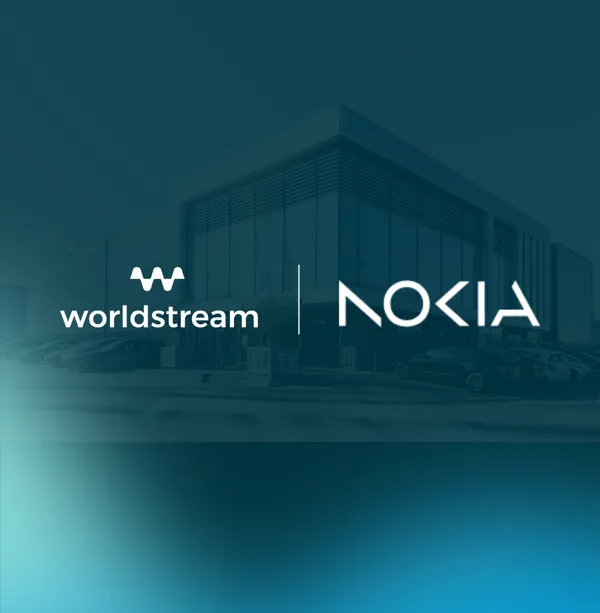
Worldstream unveils new positioning and offers customers more control over their digital infrastructure

News
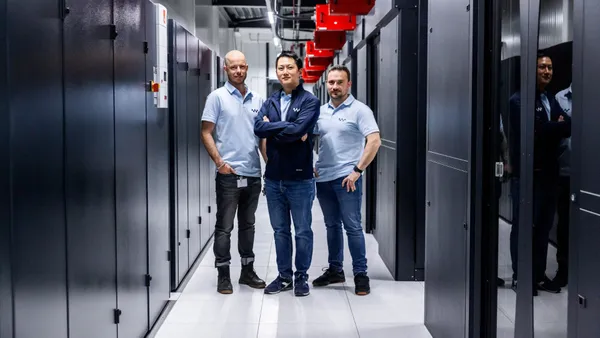
5th Gen AMD EPYC 9355P – Now Live at Worldstream

News
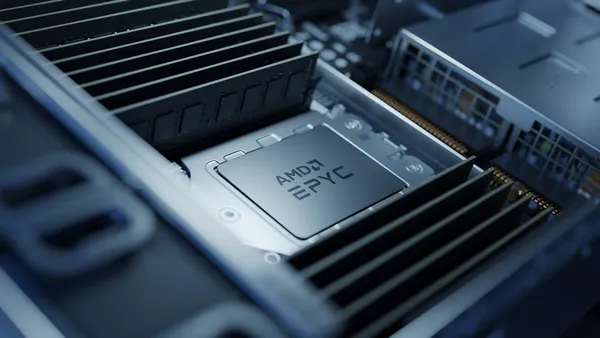
Nokia strengthens Worldstream’s hosting security with advanced DDoS Protection in the Netherlands.

News
